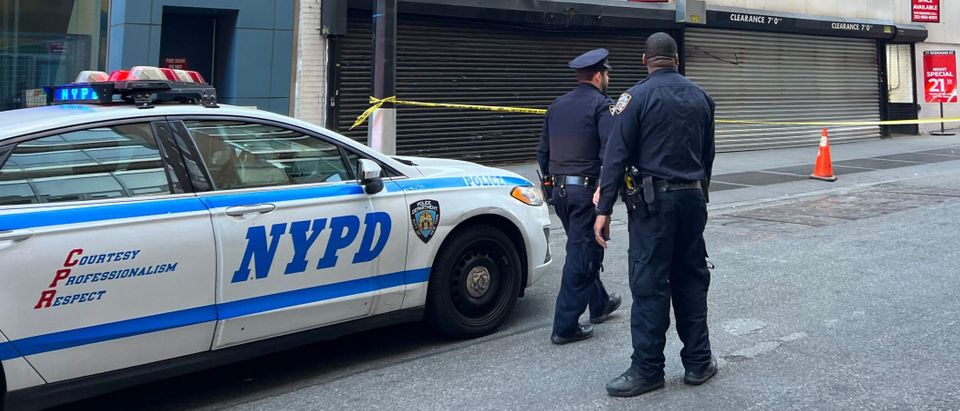When it comes to the question of how police officers should be compensated, the adage “You get what you pay for” applies. For a comparison, the average annual salary of an FBI agent is north of $100,000 per year, while the average for a police officer is about $58,000.
Furthermore, eligible FBI agent applicants must possess a four-year college degree and two years of work experience. The selection process “consists of multiple phases to include comprehensive testing, a meet and greet, a writing assessment, a structured interview, and a physical fitness assessment.” This is followed by a background investigation and a requirement to pass the FBI physical fitness assessment. Once in the field the average salary range for agent is $78,000 – $153,000.
Unlike the FBI, a vast majority (81.5 percent) of police agencies do not require applicants to possess a four-year college degree. The state of Virginia, for example, requires police applicants to be 18 years old and have U.S. citizenship and a high school diploma.
The level of danger and violence officers will encounter over their careers is far beyond what most FBI agents will ever face. Broadly speaking, police officers are paid to make prudent, often split second, decisions in the execution of their authorities, every time. Officers with the necessary maturity, judgment and temperament will quickly “read the room” to skillfully assess and diffuse potentially explosive and unpredictable situations, like a marriage counselor, school principal or night club bouncer.
Compensation for police officers should not only reflect the highest standards of trust and professional expertise that Americans expect of their law enforcement officials, it must also account for the incredible degree of stress and danger they have pledged to endure every day.
Boston University’s Tony Ford highlights the “sad fact that police officers are more likely to die from suicide than in the line of duty,” noting that “law enforcement officers have a 54% increase in suicide risk when compared to the civilian population.”
A starting salary for police officers that more closely aligns with exceptionally high public expectations and substantial personal risk would attract a larger number of qualified candidates making the hiring process more competitive. By substantially raising an officer’s starting salary, departments can be more selective and hold applicants to higher standards.
Matt Towery of InsiderAdvantage suggested a national bonus or tax credit program for police and firefighters. “How else are we ever going to motivate the next generation to consider taking on these increasingly dangerous and thankless jobs?” he wrote.
Writing after the 2020 summer of Black Lives Matter-lead protests, Associate Professor of Law Steven R. Morrison, University of North Dakota (UND), bluntly advocated paying police officers “[a] lot more,” perhaps as much as $200,000 a year for experienced officers.
We’ve known about this solution for a long time. Look, for example at this 1975 study titled “Compensation to Police Officers“ by Nancy M. Neubert of Indiana University:
“[T]he general approach has suggested that to upgrade the quality of police services, one must upgrade the quality of recruits. This, in turn, can be accomplished by making the choice of a police career more attractive, both through increased monetary compensation and with improved working conditions and other professional rewards,” Neubert wrote.
Or take this report from 1967, 56 years ago, from the Task Force on the Police of the President’s Commission on Law Enforcement and the Administration of Justice: “[T]he police cannot be expected to recruit competent personnel until communities are willing to pay the price for improved police performance … Until salaries are increased to competitive levels, the police service will fight a losing battle in its efforts to upgrade the quality of its personnel.”
Officers must be accountable for their actions. That means police unions must also reflect the same high standards of professionalism as the organizations that hire them. Reputation is everything and when departments and unions protect chronic underperformers it undermines organizational integrity and discredits the profession. As in the tragic case of the Minneapolis officers responsible for the death of George Floyd, officers who continue to fail in the judicious execution of their duties become an untenable liability to the community they serve.
Since George Floyd, the U.S. Congress has considered various Proposals for Law Enforcement Reform. Most of these measure focus on increased funding for training, banning certain restraint techniques (like choke holds), and limiting qualified immunity so officers bear greater personal liability for their official actions. Few, if any, proposals address the enhancement of recruitment and retention efforts or the benefits increased compensation might have on those efforts.
But if we’re serious about improving policing in this country, there’s only one real solution: break out the checkbook.
Mark D. Ferbrache served as an FBI special agent for 27 years specializing in white-collar criminal investigations. He later worked in the bureau’s National Security Division and CIA’s Counterterrorism Center, and held diplomatic assignments in Prague, London and Bucharest, as well as field office assignments in Seattle, New York and the FBI Headquarters in Washington. He is currently employed as a contractor in the U.S. intelligence community.
The views and opinions expressed in this commentary are those of the author and do not reflect the official position of the Daily Caller.


